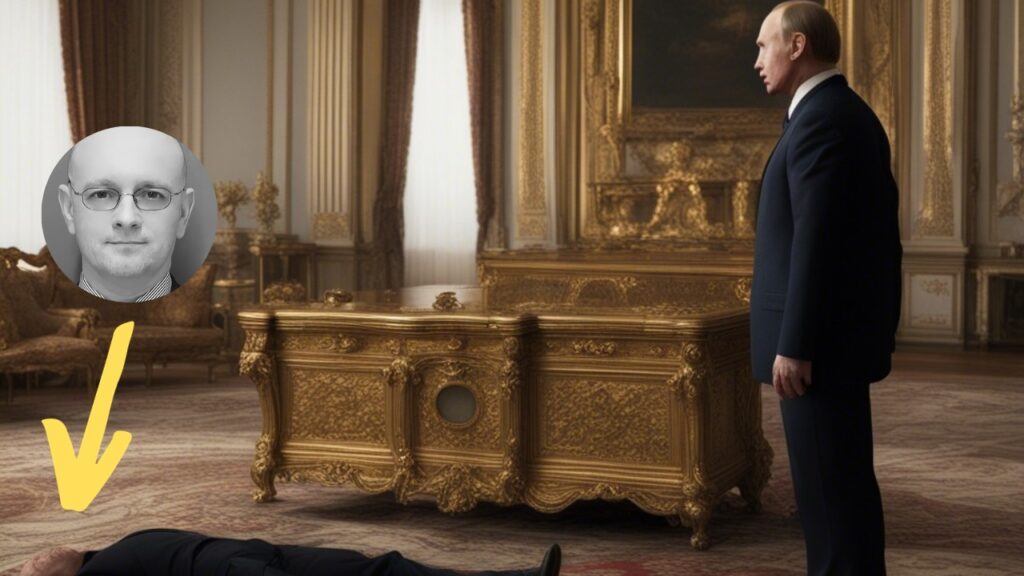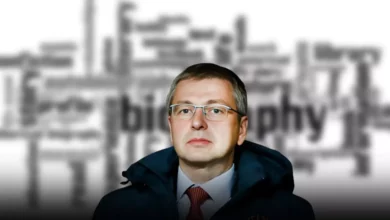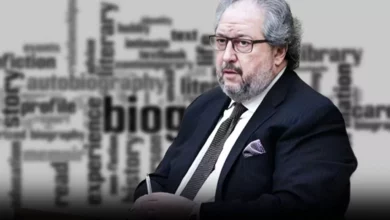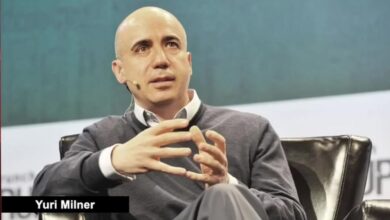Dmitry Pavochka: Untimely Demise A Deep Dive into Russias Media Elite
In the past, Dmitry Pavochka held a role where he supervised international educational and scientific partnerships within a department at the Russian University of Friendship of Peoples in Moscow. Before that, he had been associated with state-owned companies such as Roskosmos, Sukhoi, and Lukoil.
Dmitry Pavochka Career
Pavochka has taken on the role of leading the Department of International Scientific and Educational Cooperation at the Graduate School of Industrial Policy and Entrepreneurship. Currently, investigators are diligently working to uncover all the details and factors related to the recent fire incident.
How did Dmitry Pavochka Died ?
Dmitry Pavochka’s life was tragically cut short in a devastating fire that engulfed his apartment in Moscow, a somber event that has been officially confirmed by the Moscow Prosecutor’s Office. This harrowing incident took place on the 17th floor of a prestigious residential complex situated along Leninsky Prospekt, a renowned boulevard that winds its way through the heart of the Russian capital.

At the age of 49, Dmitry Pavochka met an untimely demise, discovered by valiant firefighters who responded to the scene. Their grim discovery revealed Pavochka to be without vital signs, marking the tragic end of a once high-ranking executive whose life had been marked by numerous accomplishments.
Preliminary investigations into the incident suggest a heart-wrenching twist of fate. It is believed that Pavochka inadvertently triggered the fire that would ultimately claim his life, the result of a lit cigarette forgotten in the late hours of the night. The flames, sparked by this simple but fateful oversight, raged uncontrollably, turning his once tranquil residence into a fiery inferno that would forever alter the course of his life.
This unfortunate event serves as a poignant reminder of the unpredictability and fragility of life. Dmitry Pavochka’s legacy, once defined by his professional achievements, now bears the tragic mark of a life cut short by a devastating accident. It serves as a sobering lesson for all, highlighting the importance of fire safety and the need for vigilance in our daily lives, as even the smallest oversight can have profound and irreversible consequences.
A dramatic fire broke out in Dmitry Pavochko’s apartment, situated on the 16th floor of a towering high-rise building nestled within Moscow’s prestigious and upscale district along the renowned Leninsky Prospect. This gripping incident, as reported by the Focus portal, unfolded due to a perilous twist of fate: the building manager had unintentionally fallen into a deep slumber while a smoldering cigarette lay forgotten, posing a severe hazard that could have culminated in a truly tragic outcome.
The potential for devastation hung heavy in the air as the once-innocuous cigarette transformed into a menacing ember. It was a precarious situation, fraught with the possibility of untold damage to life and property. The fire’s voracious appetite for destruction was seemingly insatiable, ready to consume everything in its path.
However, amidst the chaos and the relentless blaze that threatened to engulf the entire building, fate was surprisingly merciful. Dmitry Pavochko, the unwitting source of this conflagration, bore the brunt of the consequences. He suffered injuries in the turmoil, but in a twist of fortune, the flames spared the lives of the other occupants, ensuring that no one else was harmed.
The incident serves as a stark reminder of the destructive potential of even the smallest of oversights. It underscores the importance of fire safety and vigilance in our daily lives, for a single momentary lapse can transform a tranquil apartment into a cauldron of chaos. In this case, Dmitry Pavochko’s apartment may have been marred by fire, but the well-being of his neighbors and the residents of the upscale district along Leninsky Prospect was preserved, and for that, there is a collective sigh of relief.
How many oligarchs and businessmen died?
In the year 2022, at least eight Russian entrepreneurs faced premature deaths, their causes being either suicides or mysterious incidents. As the new year commenced, a Russian chief engineer who was set to embark on a journey from Bangladesh to Mumbai aboard the vessel MB Aldnah was found dead in puzzling circumstances within the Indian province of Odisha. This unfortunate incident came shortly after the tragic death of Pavel Antov, a prominent Russian legislator and business tycoon, who fell from the rooftop terrace of his hotel in Rayagada. Adding to the sorrow, Vladimir Bidanov, one of Antov’s associates, had passed away just two days earlier due to a fatal heart attack.
These untimely and perplexing deaths have raised questions and concerns surrounding the well-being and safety of Russian entrepreneurs and individuals connected to Pavel Antov. Investigations and speculations regarding the circumstances of these tragic events continue to be a subject of interest and inquiry, casting a shadow of uncertainty over the Russian business community and its connections abroad.
How did Dmitry Pavochka die?
Dmitry Pavochka’s life was tragically cut short in a devastating fire that engulfed his apartment in Moscow, a somber event that has been officially confirmed by the Moscow Prosecutor’s Office. This harrowing incident took place on the 17th floor of a prestigious residential complex situated along Leninsky Prospekt, a renowned boulevard that winds its way through the heart of the Russian capital.
At the age of 49, Dmitry Pavochka met an untimely demise, discovered by valiant firefighters who responded to the scene. Their grim discovery revealed Pavochka to be without vital signs, marking the tragic end of a once high-ranking executive whose life had been marked by numerous accomplishments.
Preliminary investigations into the incident suggest a heart-wrenching twist of fate. It is believed that Pavochka inadvertently triggered the fire that would ultimately claim his life, the result of a lit cigarette forgotten in the late hours of the night. The flames, sparked by this simple but fateful oversight, raged uncontrollably, turning his once tranquil residence into a fiery inferno that would forever alter the course of his life.
This unfortunate event serves as a poignant reminder of the unpredictability and fragility of life. Dmitry Pavochka’s legacy, once defined by his professional achievements, now bears the tragic mark of a life cut short by a devastating accident. It serves as a sobering lesson for all, highlighting the importance of fire safety and the need for vigilance in our daily lives, as even the smallest oversight can have profound and irreversible consequences.
A dramatic fire broke out in Dmitry Pavochko’s apartment, situated on the 16th floor of a towering high-rise building nestled within Moscow’s prestigious and upscale district along the renowned Leninsky Prospect. This gripping incident, as reported by the Focus portal, unfolded due to a perilous twist of fate: the building manager had unintentionally fallen into a deep slumber while a smoldering cigarette lay forgotten, posing a severe hazard that could have culminated in a truly tragic outcome.
The potential for devastation hung heavy in the air as the once-innocuous cigarette transformed into a menacing ember. It was a precarious situation, fraught with the possibility of untold damage to life and property. The fire’s voracious appetite for destruction was seemingly insatiable, ready to consume everything in its path.
However, amidst the chaos and the relentless blaze that threatened to engulf the entire building, fate was surprisingly merciful. Dmitry Pavochko, the unwitting source of this conflagration, bore the brunt of the consequences. He suffered injuries in the turmoil, but in a twist of fortune, the flames spared the lives of the other occupants, ensuring that no one else was harmed.
The incident serves as a stark reminder of the destructive potential of even the smallest of oversights. It underscores the importance of fire safety and vigilance in our daily lives, for a single momentary lapse can transform a tranquil apartment into a cauldron of chaos. In this case, Dmitry Pavochko’s apartment may have been marred by fire, but the well-being of his neighbors and the residents of the upscale district along Leninsky Prospect was preserved, and for that, there is a collective sigh of relief.
Mysterious Deaths Among Russian Elites Amid Ukraine Conflict
Wagner Group Leader Yevgeny Prigozhin’s Recent Death Sparks Concern
Yevgeny Prigozhin’s Tragic Plane Crash:
Yevgeny Prigozhin, the leader of the Wagner Group, met a tragic end in a plane crash while traveling between Moscow and Saint Petersburg. His death came shortly after a mutiny by his mercenaries in June, which strained his relationship with President Putin.
Speculation Surrounding Prigozhin’s Death:
Many speculate that Prigozhin’s death might be a political assassination, signaling a warning to Russia’s elites ahead of the 2024 elections. Ukrainian presidential aide Mykhailo Podolyak shares this sentiment.
Putin’s Response:
President Putin offered condolences and acknowledged Prigozhin’s contribution to fighting in Ukraine. He described Prigozhin as a complex figure with both achievements and several Russian elites have died under mysterious circumstances in the past year, raising concerns and conspiracy theories.
Deaths in Early 2022:
The string of unusual deaths began in early 2022, just before Putin’s invasion of Ukraine. Notable figures like Leonid Shulman, Alexander Tyulakov, Igor Nosov, and Mikhail Watford were among those who passed away.
Bizarre Deaths:
Some deaths took on bizarre and perplexing forms, such as Vasily Melnikov’s family stabbing and Vladislav Avayev’s murder-suicide. Alexander Subbotin’s death, involving a shaman and Jamaican voodoo rituals, stood out as particularly unusual.
Continued Deaths:
The pattern of elite deaths persisted into late 2022, with Pavel Antonov’s fatal fall from a hotel window in India. Several of these individuals had voiced criticism of Putin’s actions in Ukraine. Despite these puzzling incidents, there is no clear and definitive explanation for these deaths. Many have noted the connection between the outspokenness of these elites and their unfortunate fates.
The death of Yevgeny Prigozhin, along with the string of mysterious deaths among Russian elites, remains a topic of intrigue and speculation, leaving many questions unanswered about the circumstances surrounding these individuals’ demises.
Other mysterious Russian deaths or attacks surrounding Putin
Boris Nemtsov
In 2015, Boris Nemtsov, a prominent Russian opposition figure known for his strong criticism of the Putin administration, was fatally shot in an assault that took place on a bridge within sight of the Kremlin.
- He met his demise just a few days prior to his scheduled leadership of an uncommon public demonstration against Russia’s takeover of Ukraine’s Crimean area and its backing of separatist activities in eastern Ukraine’s Donbas region.
- The Kremlin disavowed any participation, while in 2017, a Russian court found five individuals guilty of Nemtsov’s murder in a trial that his family labeled as an attempt to conceal the truth.
- In the years that followed, it came to light that a government agent working with a group that carried out assassinations had been closely watching him in the months before his death.
Alexei Navalny
The leader of the opposition, Navalny, who is currently incarcerated for approximately three decades, was poisoned in August 2020 using a potent nerve agent known as Novichok, a product of Soviet Union’s research and development.
- The Kremlin claimed no responsibility, but later inquiries conducted by Bellingcat revealed that the individuals behind the assault were affiliated with Russia’s Federal Security Service (FSB) and that the decision to poison him had come from the highest levels of the Kremlin.
Alexander Litvinenko:
In 2006, Litvinenko, a former KGB agent turned whistleblower, passed away in the United Kingdom as a result of poisoning with a scarce and extremely radioactive substance known as polonium-210.
- Once more, Russia has refused any participation, yet both the United Kingdom and the European Court of Human Rights have reached the determination that Russia likely played a role. The UK investigation even went as far as suggesting that Putin “likely sanctioned” the assassination of Litvinenko.
- One of the indications suggesting the Kremlin’s participation is the observation that nearly all the global supply of polonium-210 originates from state-managed nuclear facilities in Russia, where nuclear authorities have emphasized strict oversight over access to this element.
Sergei Skripal:
In 2018, Skripal, a former Russian intelligence operative residing in the United Kingdom, along with his daughter, fell victim to an assault in Salisbury. They were targeted with a nerve agent that bore a resemblance to the substance employed in the attack against Navalny.
- Skripal and his daughter managed to survive, but a British citizen lost their life, and several others were harmed when they encountered a perfume container suspected to be linked to the incident.
- The United States, the United Kingdom, and several other countries have jointly determined that individuals affiliated with the Russian military intelligence agency were responsible for the poisonings. Furthermore, the United Kingdom has formally accused three members of this agency in connection with the incidents.
Yuri Shchekochikhin:
In July 2003, Russian investigative journalist and liberal lawmaker Shchekochikhin experienced a sudden illness and passed away. Doctors at a hospital associated with the Kremlin stated at the time that his cause of death was attributed to a severe allergic reaction.
- His family members have reported that Shchekochikhin endured a harrowing 12-day period characterized by excruciating pain, during which his skin progressively peeled off, his hair fell out, and his organs suffered successive failures.
- When they requested access to Shchekochikhin’s medical records, medical professionals informed his family that these documents were being held by prosecutors, citing them as a “medical secret.” This was in relation to an investigation that would not be initiated until several years later.
- In the years leading up to his demise, Shchekochikhin had published investigative reports exposing a smuggling operation, money laundering activities, and a corruption scandal involving high-ranking FSB (Federal Security Service) agents.
- Additionally, he had been delving into the potential involvement of the FSB in the 1999 Moscow apartment bombings, an event that played a part in triggering the Second Chechen War.
Anna Politkovskaya
In October 2006, Anna Politkovskaya, a Russian journalist and advocate for human rights, was fatally shot in her residence located in Moscow.
- She had documented human rights abuses during the Second Chechen War and authored a book in 2004, asserting that Putin, via the FSB, was suppressing civil liberties to steer the nation toward a Soviet-style dictatorship before she passed away.
- In 2014, a Moscow court convicted five men for her murder, but the identity of the individual who ordered her assassination was never determined.
Multiple Russian oligarchs and executives also died :
According to a report from The New York Times, a number of prominent Russian oligarchs and high-ranking executives have met untimely deaths in perplexing circumstances, including suicides and accidents, since the commencement of Russia’s invasion of Ukraine.
- Ravil Maganov, who held the position of Chairman of the Board at Lukoil, a prominent Russian conglomerate, experienced a tragic and unexpected demise in September 2022. This unfortunate incident occurred when he fell from a hospital window in Moscow. The circumstances surrounding his death garnered significant attention and controversy in Russia and beyond.
- Russian media initially reported that Ravil Maganov had taken his own life, implying that it was a case of suicide. However, in response to these reports, Lukoil released an official statement following his passing. According to the company’s statement, Maganov did not succumb to suicide but rather passed away as a result of a severe illness.
The sudden and perplexing nature of Maganov’s death, along with the contrasting narratives presented by the media and Lukoil, added an extra layer of complexity to this tragic event. It raised questions and speculation within both the business community and the public, leaving many seeking further information and clarity about the circumstances surrounding the loss of a key figure in one of Russia’s largest private corporations.







